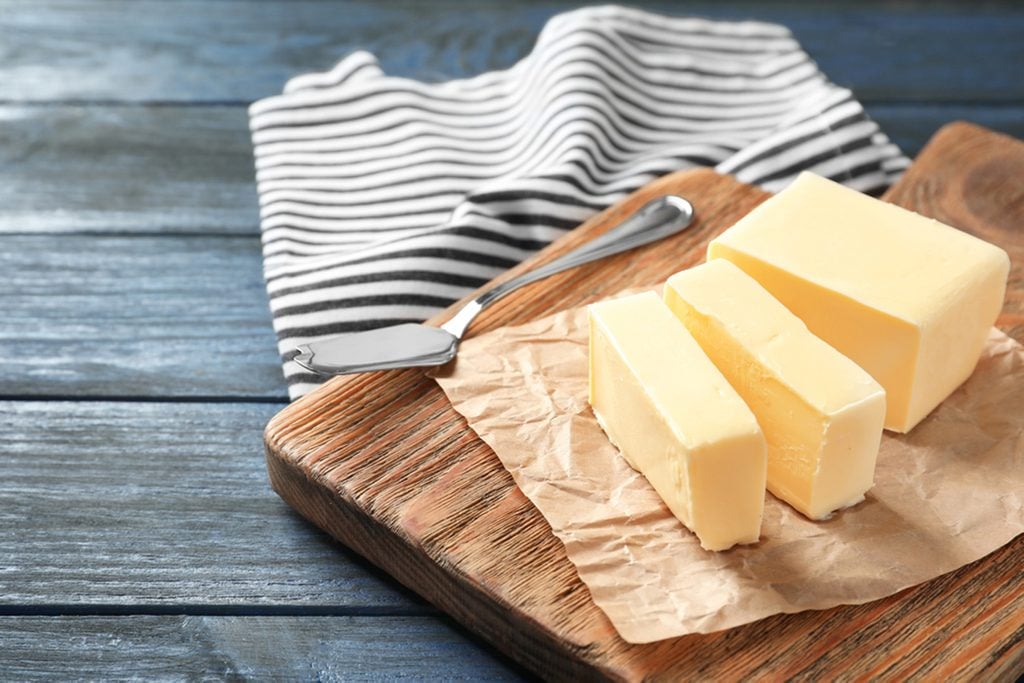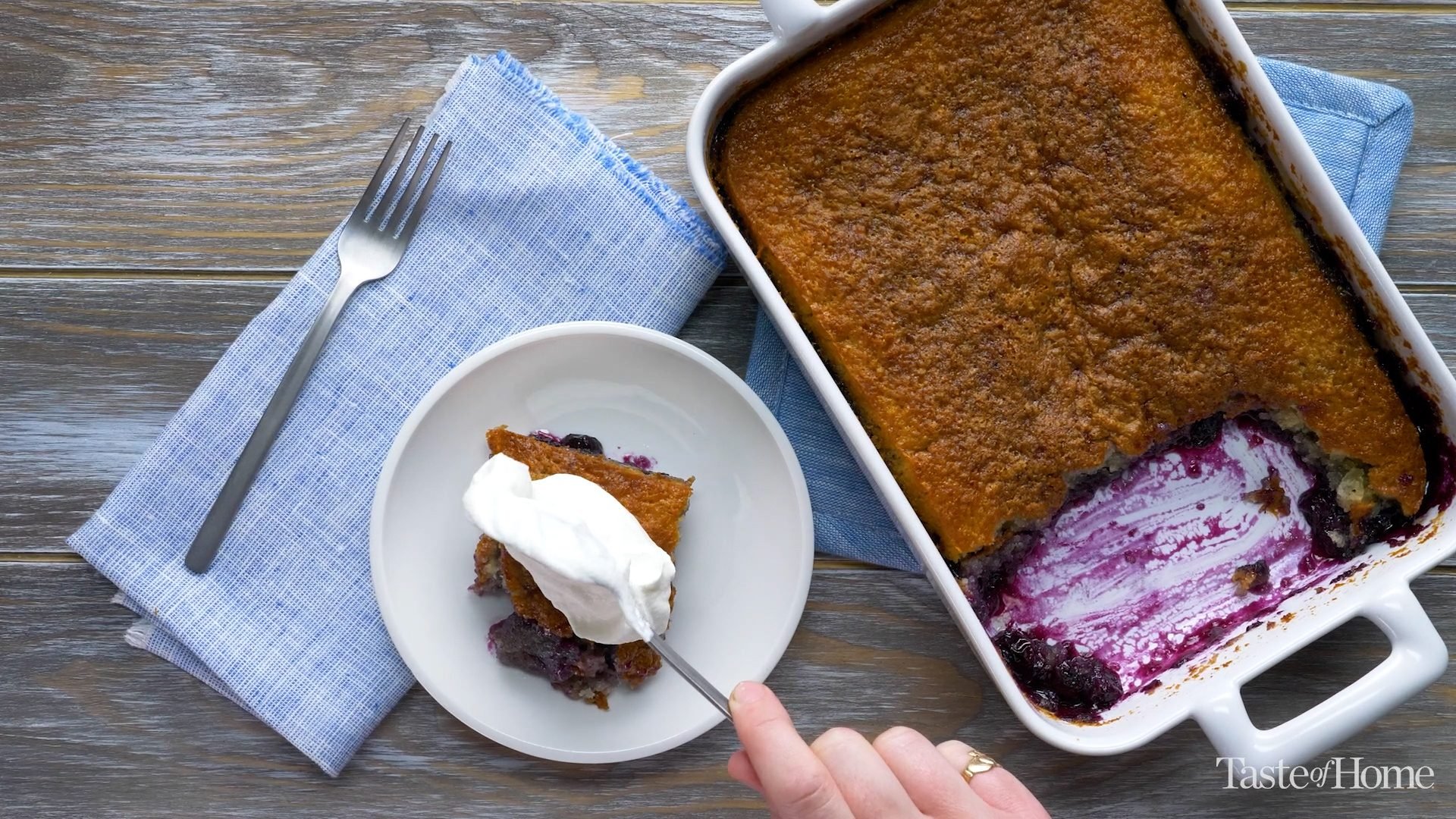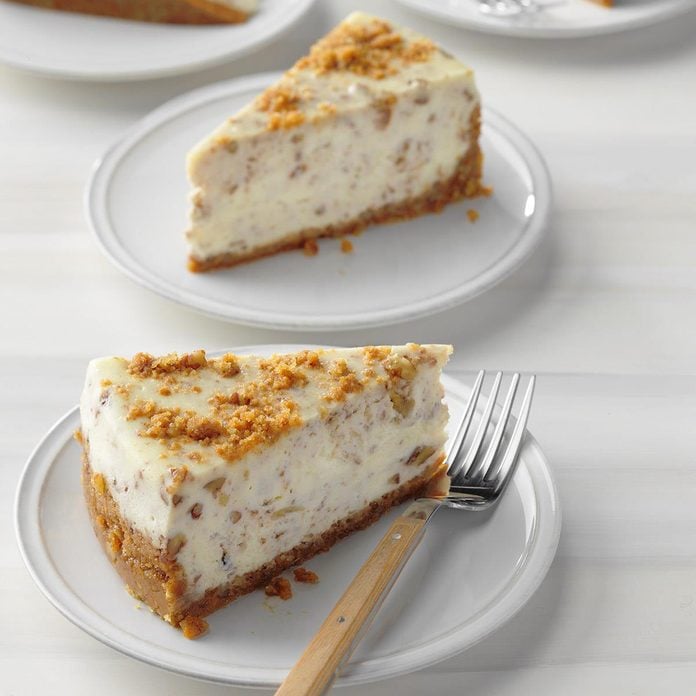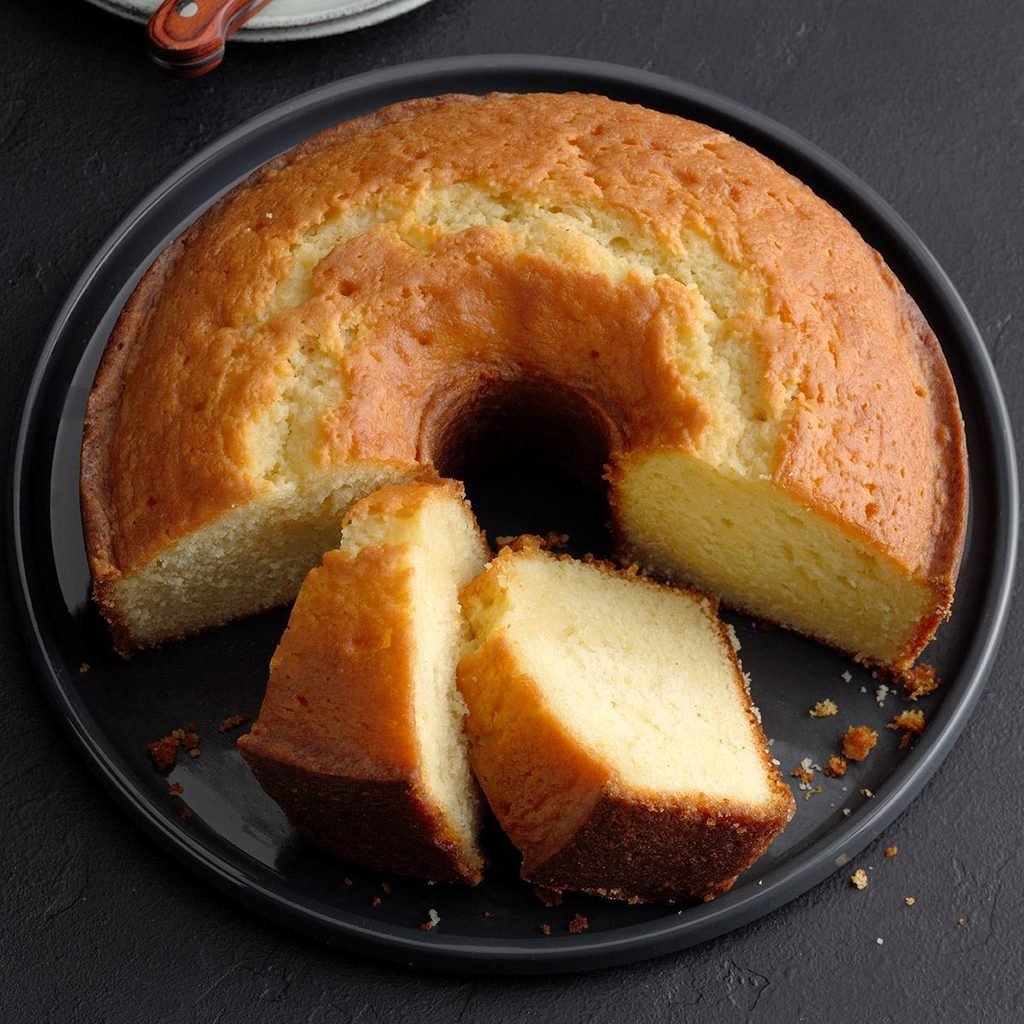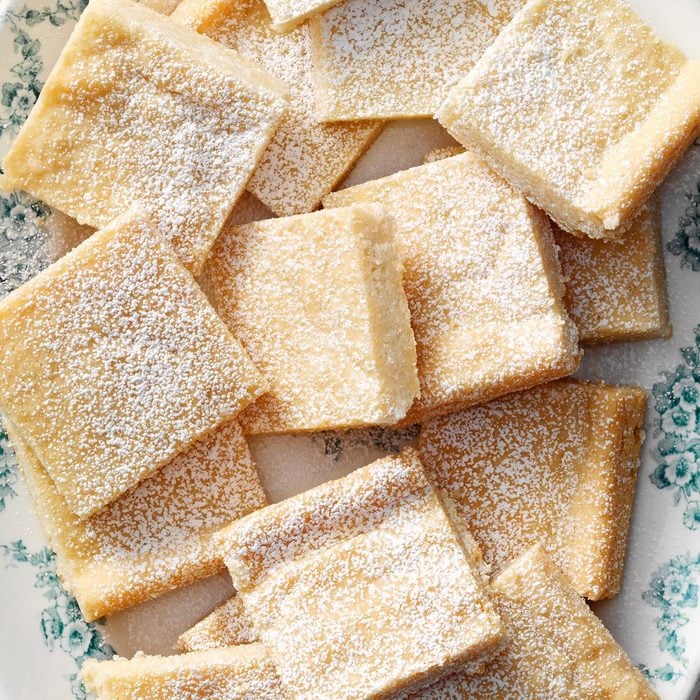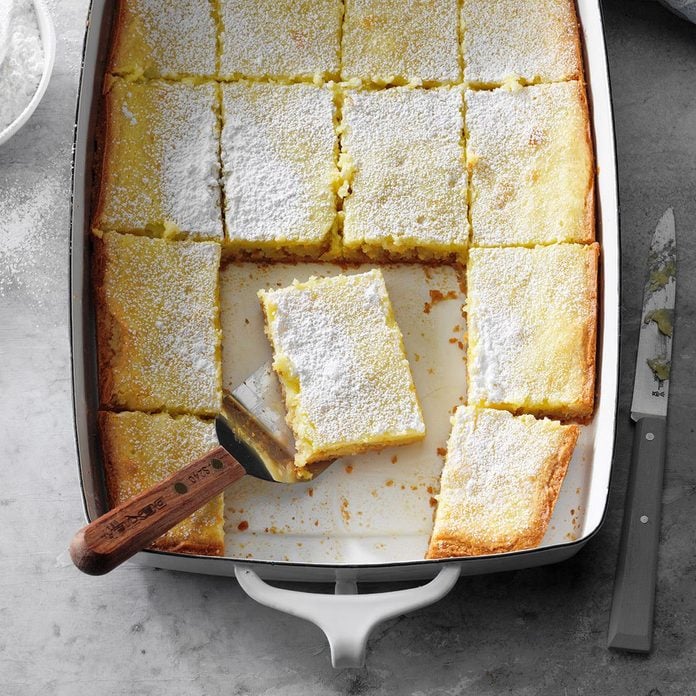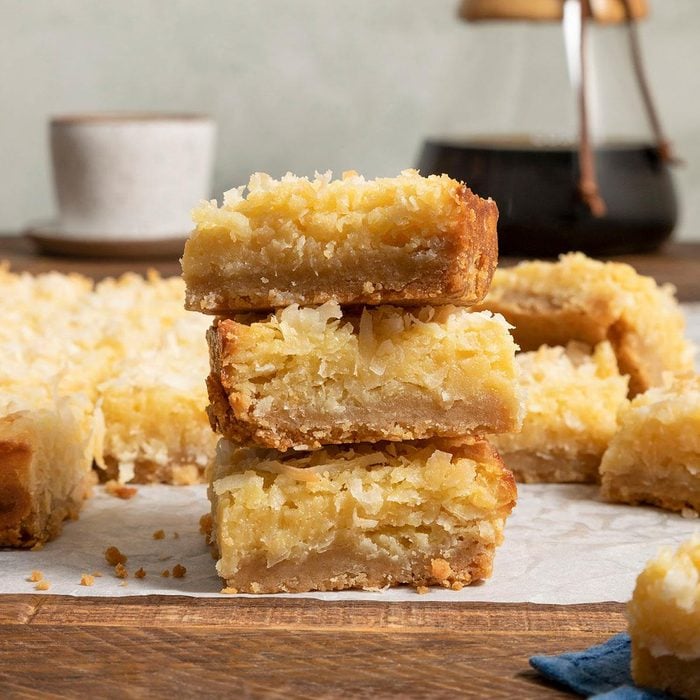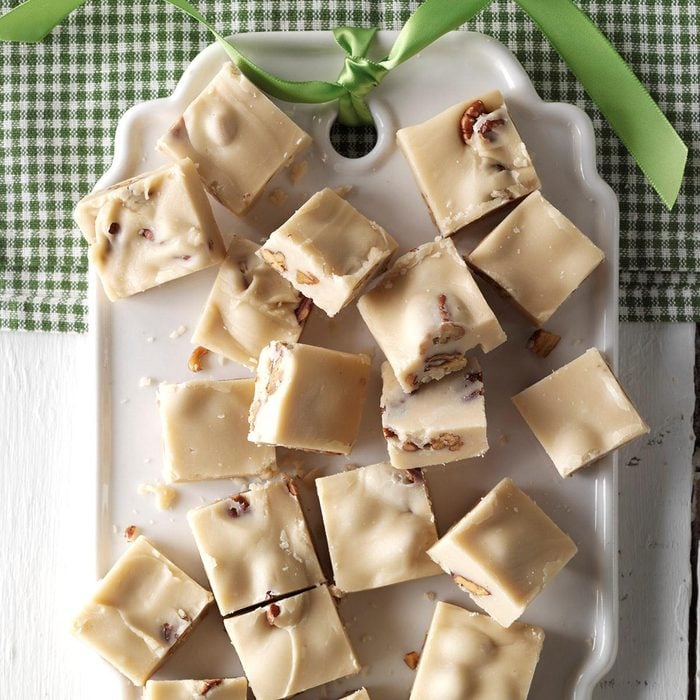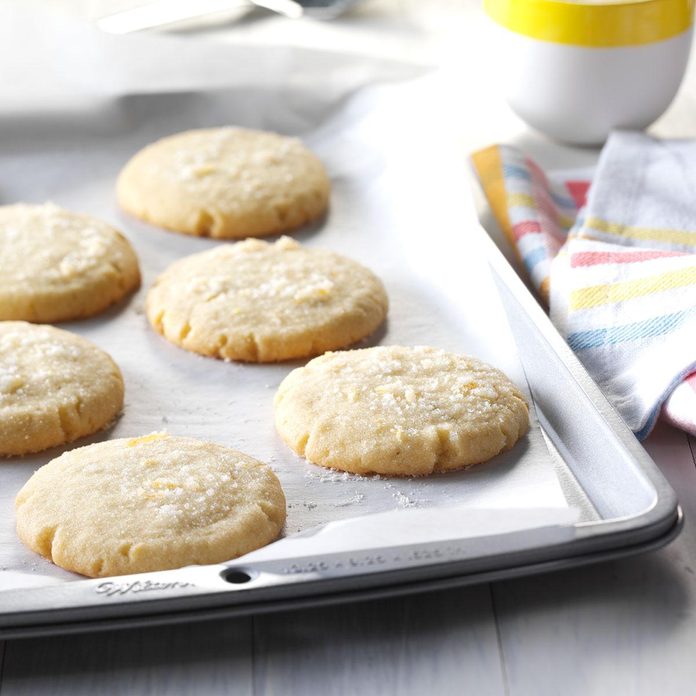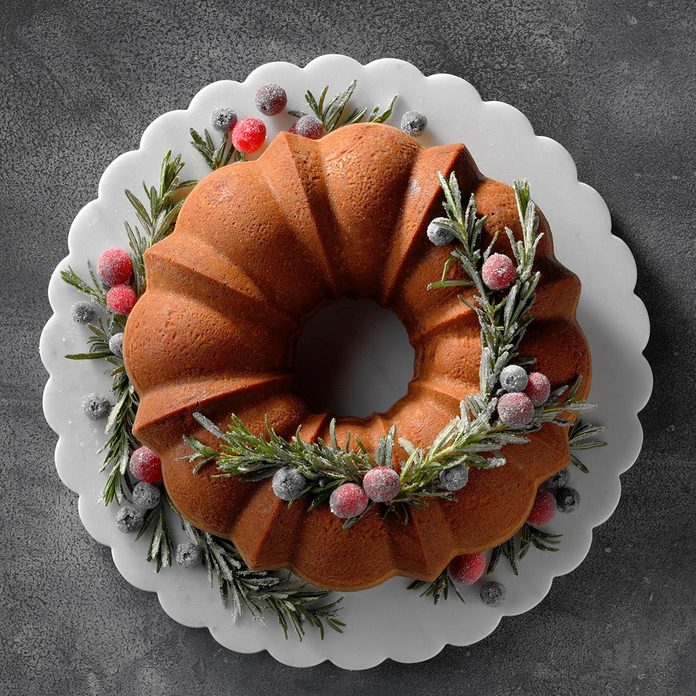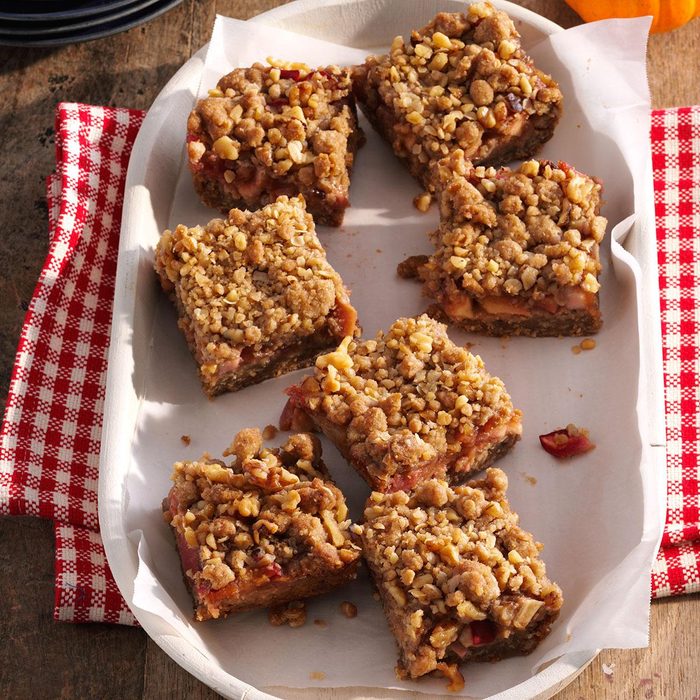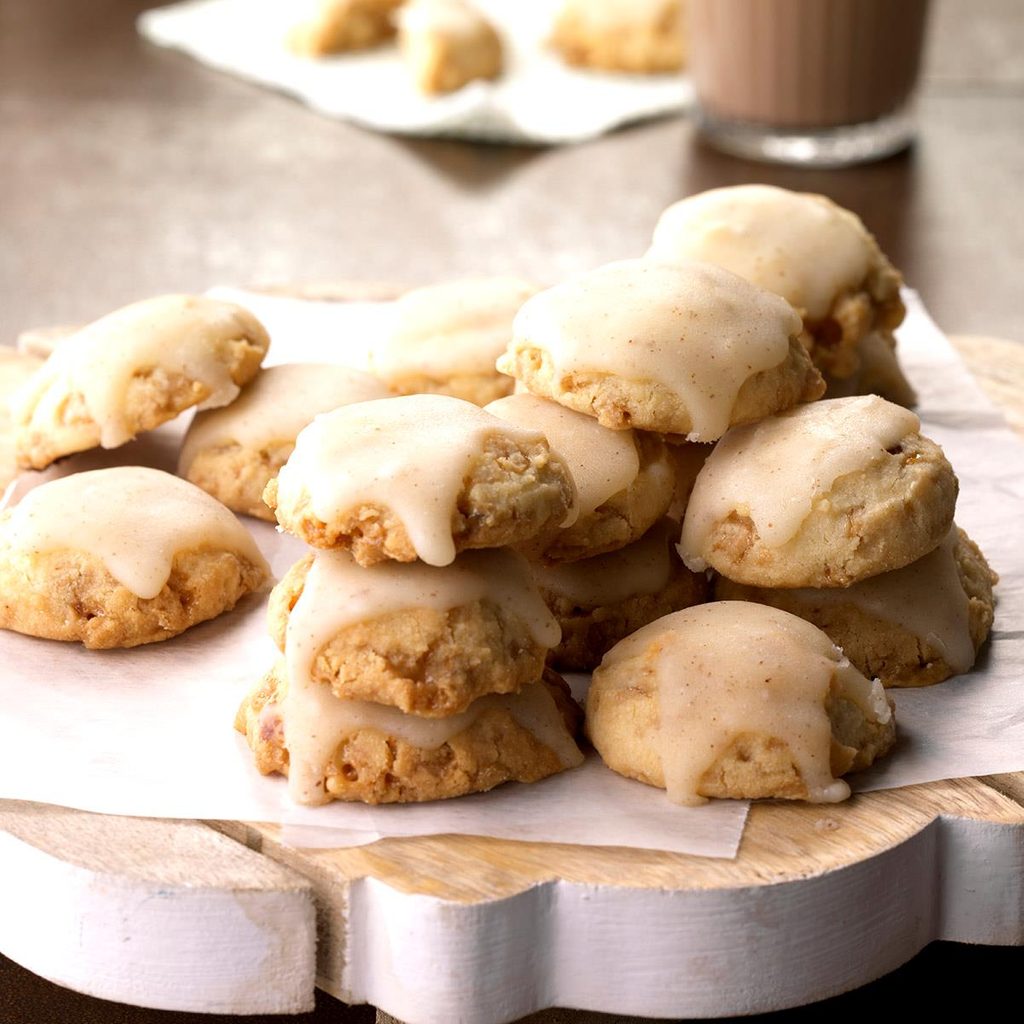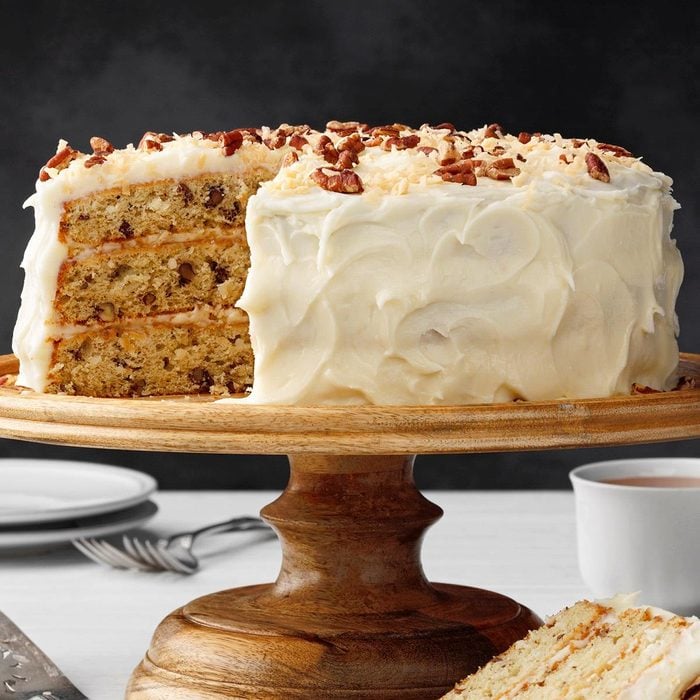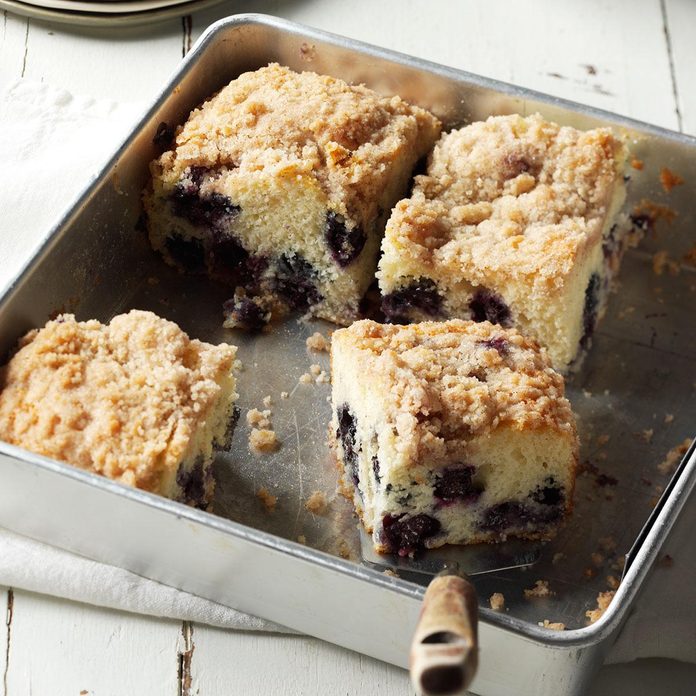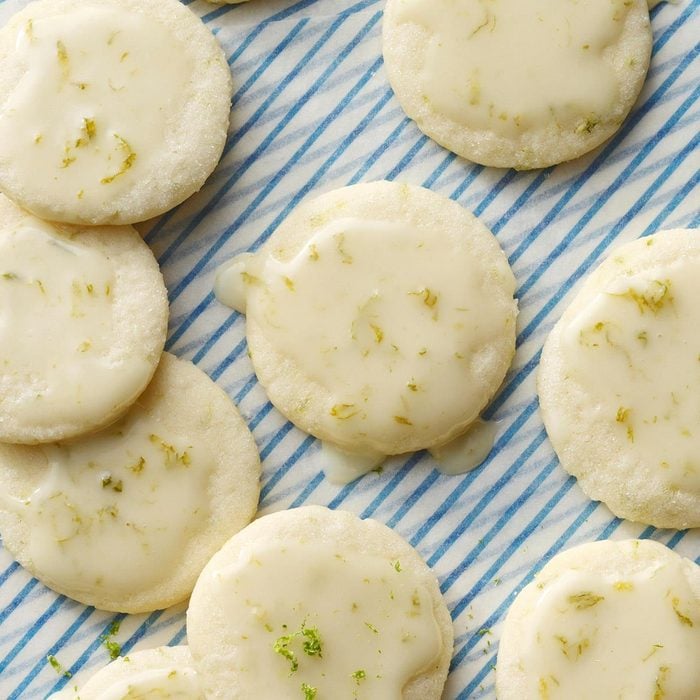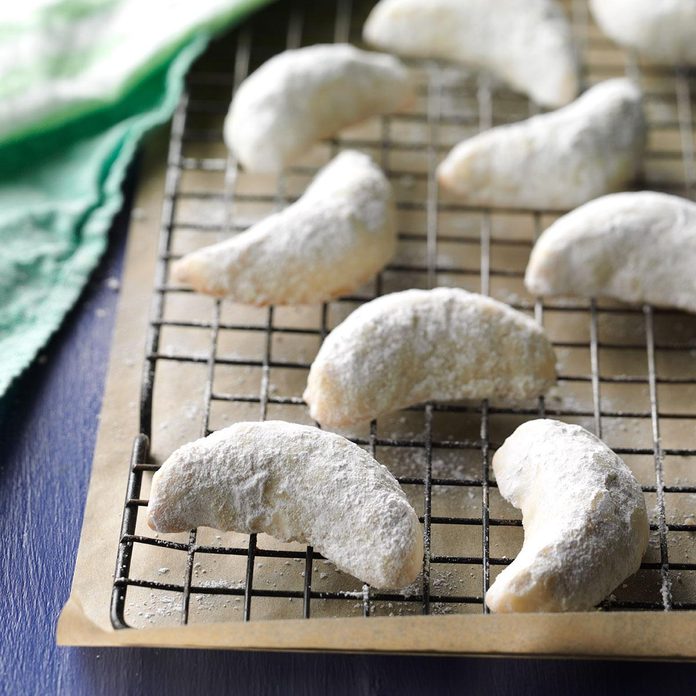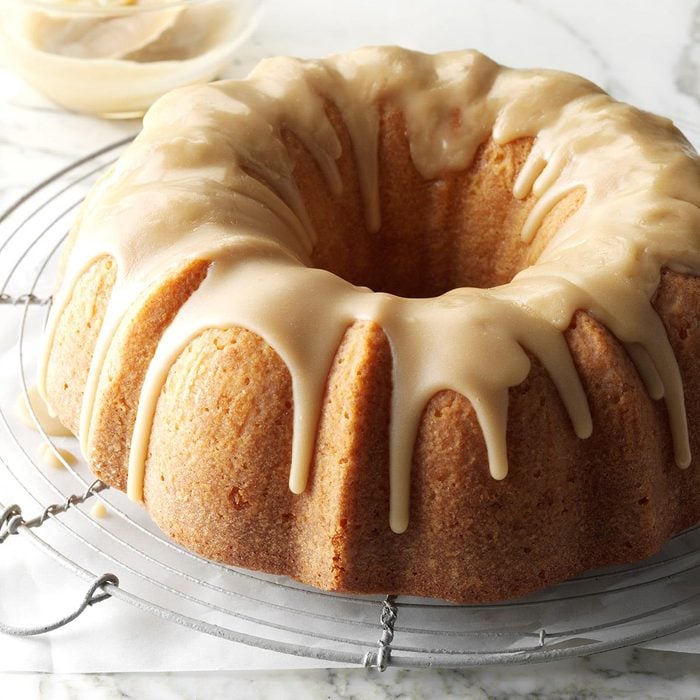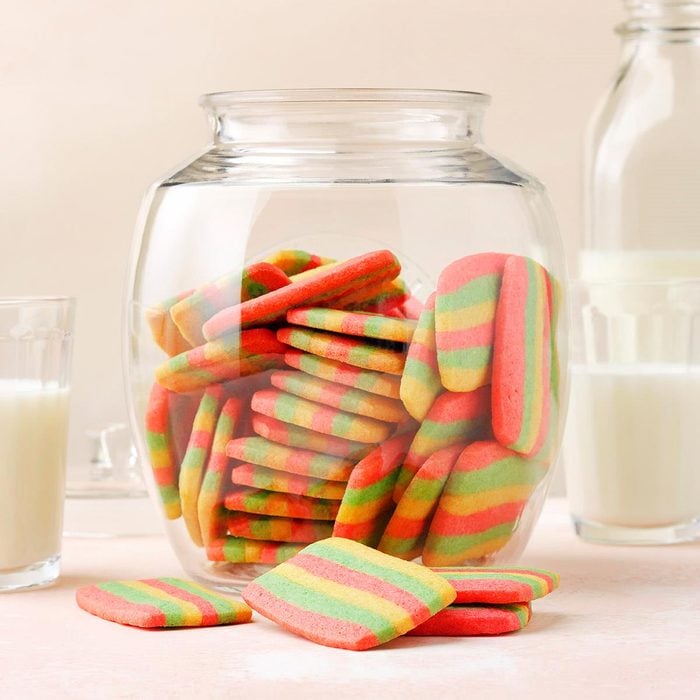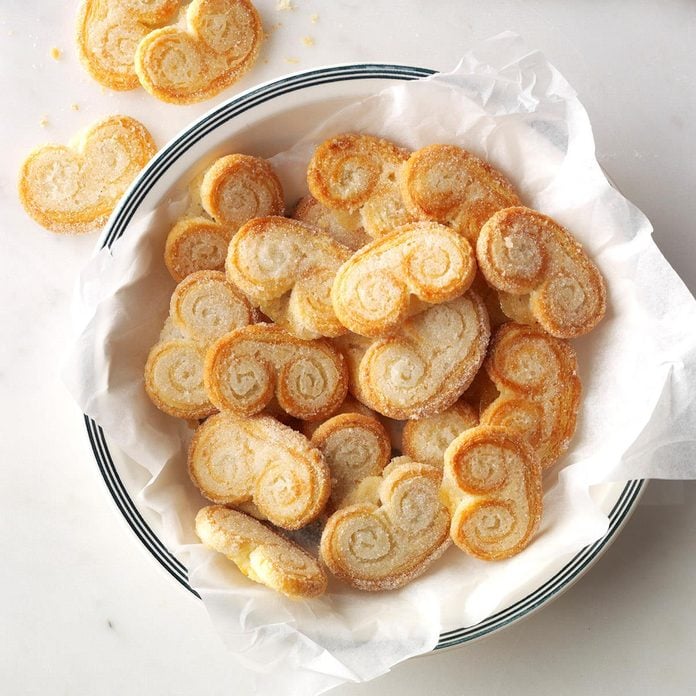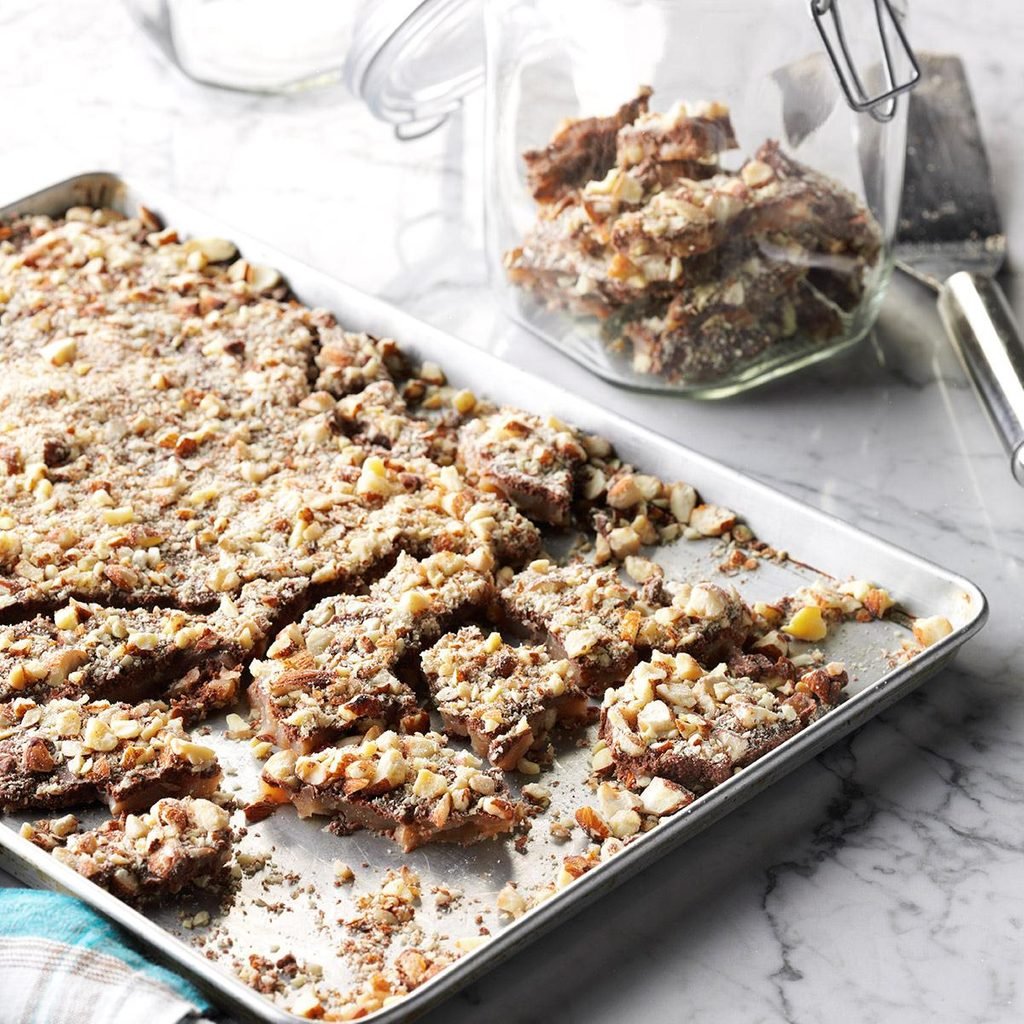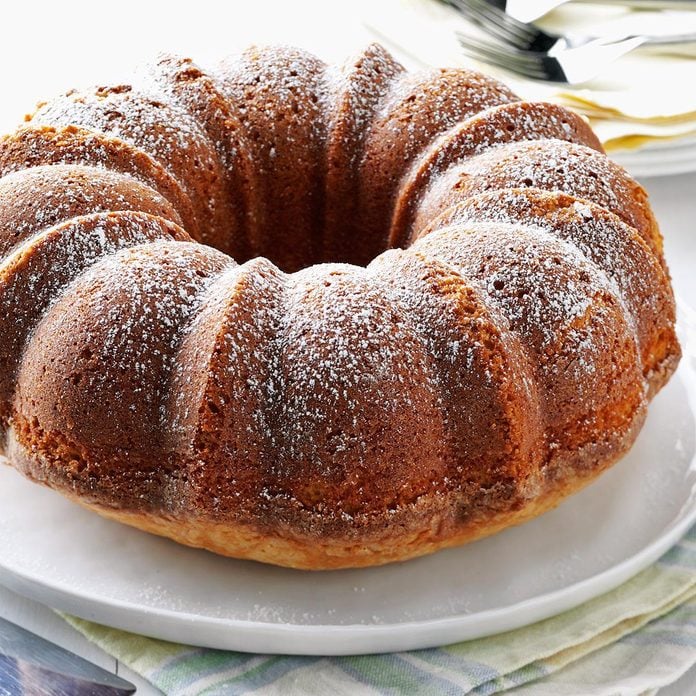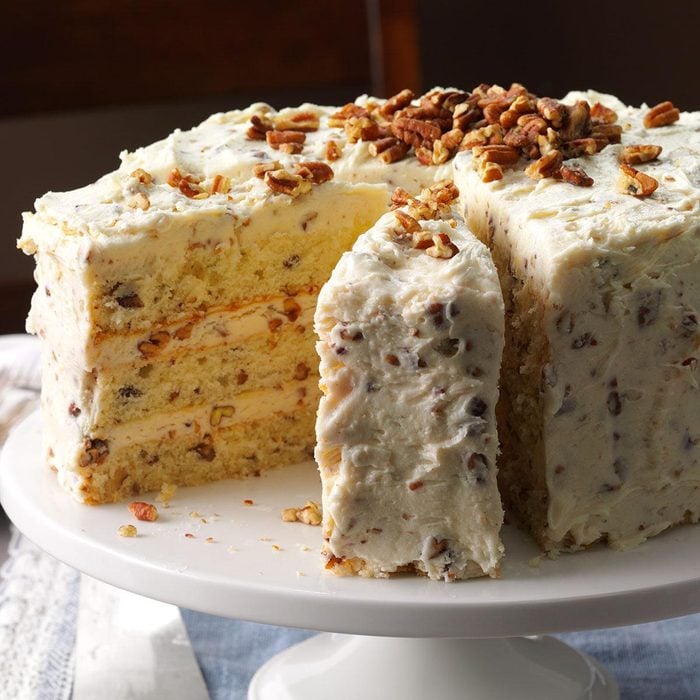When it comes to baking, we all have our favorites. Many of us are loyal when it comes to the brands of vanilla we buy and have a preferred bag of chocolate chips. You likely even have a preferred brand of butter (even if that’s just whatever’s on sale!). But are you choosing the right kind—we’re talking salted vs. unsalted butter—for your favorite recipes?
Salted vs. Unsalted Butter
The difference between the two kinds of butter is obviously salt. Unsalted butter is all cream, while the salted variety has some salt added, though the amount varies from brand to brand.
Because salt is a preservative, salted butter has a longer life in the fridge—typically around five months while unsalted usually is good for about three. (It’ll also keep on your counter if you follow these rules.) In addition, this means that when you visit your supermarket, chances are the unsalted variety is a bit fresher.
Butter keeps well in the fridge, but can you freeze butter?
When Should You Use Each Kind of Butter?
 Taste of Home
Taste of Home
If a recipe specifies salted or unsalted butter, that is the type you should reach for. However, if no type is specified, there are a few guidelines to consider.
When to Use Unsalted Butter
Unsalted butter is most commonly called for in baking recipes. Unsalted butter has a very neutral, creamy flavor—a great base for many baked goods.
In baking, precise measurements are key for achieving the right flavor and texture. This even extends to small amounts of ingredients like salt. Because you can’t be sure of the exact level of salt in each brand of butter, baking recipes are typically formulated with unsalted butter in mind and then require you add a particular measurement of salt.
That means whether you use European butter, generic butter or whatever brand you choose—as long as it’s unsalted—the recipe will turn out the same.
In general, if you see a baking recipe that calls for an unspecified type of butter and salt, it’s safe to assume you should opt for unsalted butter.
When to Use Salted Butter
Salted butter has ample uses in your kitchen. Because salt helps bring out the flavor in foods, it’s a welcome addition in almost any dish.
Use salted butter when composing sauces, sauteeing veggies, topping your morning toast or even making the perfect Thanksgiving turkey. The touch of salt in the butter will really help accentuate all of these flavors. Unsalted butter would provide the fat you’d need in these cases but not that extra flavor.
Really, you can use salted butter in any savory application or when using it as a spread. That’s right: Salted butter should be your go-to for your butter dish or butter bell.
Is Salted Butter Better Than Unsalted?
Now, if you’re wondering if one butter is better than the other, the answer is no. Both salted and unsalted versions are useful in cooking and baking. They are both equally delicious and make for rich, delectable recipes.
ⓘ
What Happens if You Use Salted Butter Instead of Unsalted?
 Taste of Home
Taste of Home
If you’ve got your heart set on making a particular dessert that calls for unsalted butter and you only have the salted variety, don’t let that stop you from preheating your oven.
You can definitely use salted butter and unsalted interchangeably. If a recipe calls for unsalted butter and additional salt, just use a little less of the salt that the recipe calls for. That’s the only tweak you need to make!
Now that you know the key differences and uses for these kinds of butter, you might just be buying an extra box or two. So keep this info—as well as some of Grandma’s best butter tips—in mind next time you shop.
Try These Irresistible Buttery Desserts
Buttery Blueberry Cobbler
As the name implies, this is a recipe that is rich and delicious. Since you can use either fresh or frozen blueberries, you can make this easy blueberry cobbler year-round. —Marjorie Green, South Haven, Michigan
Go to Recipe
Butter Pecan CheesecakeFall always makes me yearn for this pecan cheesecake, but it’s delicious in any season. You’ll want to put it on your list of favorite holiday desserts. —Laura Sylvester, Mechanicsville, Virginia
Kentucky Butter CakeI found this Kentucky butter cake recipe in an old cookbook I bought at a garage sale and couldn’t wait to try it. I knew it had been someone’s favorite because of the well-worn page. —Joan Gertz, Palmetto, Florida
Buttery 3-Ingredient Shortbread CookiesWith only a few ingredients, these butter shortbread cookies are so simple to prepare. —Pattie Prescott, Manchester, New Hampshire
Chocolate-Tipped Butter CookiesThese wonderfully moist morsels are too tempting to resist. They melt right in your mouth. Rather than sprinkling the chocolate tips with nuts, you can roll them in red and green jimmies or leave them plain. —Charolette Westfall, Houston, Texas
Gooey Butter CakeA friend gave me a quick version of this
gooey butter cake recipe using a cake mix, but I prefer baking from scratch, so I came up with my own. My family can't get enough! The middle will sink a little; this is normal. This dessert is delicious served warm or cold. —Cheri Foster, Vail, Arizona
Browned Butter Spice CookiesIf you like spice cake, you’ll love this recipe! Browned butter, dark chocolate and a splash of rum produce an unconventional spice cookie that’s guaranteed to please. —Kristin Kenney, Newport Beach, California
Old-Time Butter Crunch CandyBoth my children and my grandchildren say the season wouldn't be the same without the big tray of candies and cookies I prepare. This one's the most popular part of that collection. We love the nutty pieces draped in chocolate. —Mildred Duffy, Bella Vista, Arkansas
Buttery Coconut BarsMy coconut bars are an American version of a Filipino coconut cake called
bibingka. These are a crispier, sweeter take on the Christmas tradition I grew up with. —Denise Nyland, Panama City, Florida
Butter Pecan FudgeToasted pecans add a nutty crunch to this creamy fudge, perfect for holiday giving. People always seem to rave about its wonderful caramel flavor. —Pam Smith, Alta Loma, California
Maple Butter TwistsMy stepmother gave me the recipe for a delicious yeast coffee cake shaped into pretty rings. When I make it for friends, they always ask for seconds. —June Gilliland, Hope, Indiana
Lemon & Rosemary Butter CookiesCooling lemon and aromatic rosemary make these butter cookies stand out at the holidays. I use them to punch up the cookie trays for potlucks or as gifts.—Elizabeth Hokanson, Arborg, Manitoba
Butter Pound CakeWhether garnished with fresh berries and sprigs of rosemary or just served plain, this rich cake is fabulous. It bakes to a beautiful golden brown and it's definitely a keeper! —Edgar Wright, Silver Spring, Maryland
Red Apple Butter BarsFall means apple-picking time, and we love using the fresh fruit to bake up these bars. The streusel on top makes them even better. —Nancy Foust, Stoneboro, Pennsylvania
Frosted Butter Rum Brickle BitesThe rum, real butter and toffee bits made these cookies my husband’s new favorite. If you’d like them less sweet, skip the frosting and sprinkle the cookies with confectioners’ sugar while still warm. —Cindy Nerat, Menominee, Michigan
Coconut Italian Cream CakeI’d never tasted an Italian cream cake before moving to Colorado. Now I bake for people in the area, and this beauty is one of the most requested. —Ann Bush, Colorado City, Colorado
Lemon Butter CookiesThese tender cutout cookies have a slight lemon flavor that makes them stand out from the rest. They're very easy to roll out compared to other sugar cookies I've worked with. I know you'll enjoy them as much as we do. —Judy McCreight, Springfield, Illinois
Butter Pecan Cookie Bars with Penuche DrizzleI have made these Butter Pecan Cookie Bars for many, many years. They are rich, chewy, nutty and buttery—all the good stuff. They freeze well, that is, if they last long enough. A little drizzle of old-fashioned penuche icing takes them over the top. —Kallee Krong-McCreery, Escondido, California
Contest-Winning Butter Pecan Ice CreamThis rich buttery ice cream sure beats store-bought versions. And with its pretty color and plentiful pecan crunch, it's nice enough to serve guests at a summer party.
-Jenny White
Glen, Mississippi
Down East Blueberry BuckleThis buckle won a contest at my daughter’s college. The prize was four lobsters, but the real reward was the smile on our daughter’s face. —Dianne van der Veen, Plymouth, Massachusetts
Key Lime Butter CookiesI love limes so much that if a recipe calls for lemons I almost always use limes instead. With their pretty green color, these are perfect for Christmas—you can also make them as sandwich cookies and use lime curd for the filling.—Deirdre Cox, Kansas City, Missouri
Kourabiedes (Greek Butter Cookies)I had to bake something from my heritage for school. So, I made this heavenly kourabiedes recipe. —Rebecca Sprague, St. Louis, Missouri
We also have one more recommendation for you. Try these
Greek doughnuts which are fluffy, bite-sized, and fried to perfection!
Buttermilk Cake with Caramel IcingThis fabulous cake and caramel frosting are so tender, it melts in your mouth. It's been a family favorite since the '70s and it goes over really well at church potluck meals. —Anna Jean Allen, West Liberty, Kentucky
Rainbow Butter CookiesOur family can't get through the holidays without these fun, colorful cookies. They come out of my oven by the dozens! —Lanette Tate, Sandy, Utah
Buttery Ganache Cookie CupsOur family wanted to share our love of ganache-filled cupcakes, so we made them into cookies. Even better: we bake the cookies in muffin cups, fill with ganache, and get the best of both worlds! —Adela Srinivasan, Parker, Colorado
PalmiersIt takes just two ingredients to make these impressive but easy-to-do French pastries, which are often called palm leaves. —Taste of Home Test Kitchen, Milwaukee, Wisconsin
Aunt Rose's Fantastic Butter ToffeeI don't live in the country, but I love everything about it—especially good old-fashioned home cooking! Every year, you'll find me at our county fair, entering a different contest. This easy toffee recipe is a family favorite. —Kathy Dorman, Snover, Michigan
Buttermilk Pound CakeNow that I've retired from teaching, I have more time to bake. This buttermilk pound cake is the one I make most often. It is a truly southern recipe, and one I think can't be topped—once people taste it, they won't go back to their other recipes with buttermilk. —Gracie Hanchey, De Ridder, Louisiana
Butter Pecan Layer CakePecans and butter give this cake the same irresistible flavor as the popular butter pecan ice cream flavor. —Becky Miller, Tallahassee, Florida
